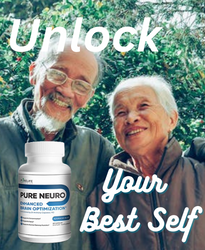Ah, mental health and chronic inflammation — two star-crossed lovers in the bizarre world of human biology. If these two were a couple, their relationship status on social media would read, “It’s complicated.” But what if we told you that this dynamic duo holds the key to understanding your body’s drama and, potentially, finding peace in your mind and body? Buckle up as we dive into this fascinating connection, armed with science, humor, and maybe a little bit of metaphorical relationship counseling.
What Is Chronic Inflammation, and Why Does It Matter?
Before we explore how chronic inflammation crashes the mental health party, let’s first meet the guest of dishonor. Inflammation, in its acute form, is a good thing. Imagine it as your body’s superhero, swooping in to fight off infections or heal wounds. Got a paper cut? Inflammation is on it. Stubbed your toe? It’s inflammation to the rescue.
But when inflammation overstays its welcome, it transforms from a helpful buddy into an annoying roommate who leaves dirty dishes in the sink. Chronic inflammation lingers in your body like a Netflix series that should’ve ended three seasons ago. Instead of aiding recovery, it starts attacking healthy tissues, leading to a host of issues, including cardiovascular disease, diabetes, and… drumroll, please… mental health struggles.
Mental Health and Chronic Inflammation: A Love-Hate Relationship
So, where does mental health fit into this equation? Researchers have found that chronic inflammation doesn’t just hang out in your joints and arteries; it also sneaks into your brain’s DMs. This relationship is anything but healthy. Let’s unpack it step by step.
How Chronic Inflammation Affects Your Brain
Chronic inflammation has a knack for stirring up trouble in the brain. When inflammation becomes a long-term tenant, it can alter the way your brain functions. Cytokines, the inflammatory molecules, cross the blood-brain barrier like uninvited guests crashing a party. Once inside, they disrupt normal brain processes, potentially leading to conditions like depression, anxiety, and even cognitive decline.
Join Our Mailing List
Register now to get our hints and tips newsletter directly to your inbox
The Role of the Gut-Brain Axis in Mental Health and Chronic Inflammation
Here’s where the plot thickens: your gut plays a starring role in this saga. The gut-brain axis is a superhighway of communication between your digestive system and your brain. Chronic inflammation in the gut (think leaky gut syndrome or an imbalance in gut microbiota) can send distress signals to the brain. It’s like a long-distance relationship gone wrong, where one partner’s bad vibes ruin the entire dynamic.
Why Sleep Matters in the Battle Against Mental Health and Chronic Inflammation
Ah, sleep, the unsung hero of health. When you don’t get enough quality Z’s, your body ramps up its inflammatory response. Chronic sleep deprivation can lead to heightened levels of cytokines, which, as we’ve established, are not your brain’s best friend. A lack of sleep turns your brain into a grumpy teenager, making it more susceptible to anxiety, depression, and poor decision-making (like eating that entire tub of ice cream at 2 a.m.).
Fighting Back: How to Manage Mental Health and Chronic Inflammation
Now that we’ve diagnosed the toxic relationship between mental health and chronic inflammation, it’s time for a breakup plan. Here’s how you can send chronic inflammation packing and reclaim your mental well-being.
Anti-Inflammatory Diet: Your Brain’s BFF
One of the most effective ways to tackle chronic inflammation is through your plate. Ditch the processed junk and embrace whole, nutrient-dense foods like:
- Fatty fish: Salmon and mackerel are rich in omega-3 fatty acids, which are known for their anti-inflammatory properties.
- Leafy greens: Spinach and kale are packed with antioxidants that help combat inflammation.
- Berries: Blueberries and strawberries are not just delicious; they’re inflammation-fighting ninjas.
- Nuts and seeds: Almonds and flaxseeds are great snacks that double as brain-boosters.
Exercise: The Double Agent
Exercise is like a double agent working for both your mental health and inflammation control. Regular physical activity reduces levels of inflammatory markers while boosting feel-good chemicals like serotonin and dopamine. Just 30 minutes of movement a day can help keep chronic inflammation at bay.
Stress Management for Better Mental Health and Chronic Inflammation
Stress is the frenemies’ glue in this relationship. Chronic stress not only exacerbates mental health issues but also fuels inflammation. Learning to manage stress effectively is crucial for breaking this vicious cycle.
Mindfulness Practices: Your Stress-Relief Toolkit
Mindfulness practices like meditation, yoga, and deep breathing exercises can significantly reduce stress and inflammation. These practices teach your body to hit the pause button, calming your nervous system and giving your inflammation a much-needed chill pill.
Laughter: The Best Medicine (Literally)
Ever heard the phrase “laughter is the best medicine”? Turns out, it’s backed by science. Laughing reduces stress hormones and boosts immune function, which can help keep inflammation in check. So, go ahead, watch that cat video or stand-up comedy special. Your brain and body will thank you.
Supplements and Therapies for Mental Health and Chronic Inflammation
While lifestyle changes are foundational, supplements and alternative therapies can provide an extra edge in managing chronic inflammation and its impact on mental health.
Omega-3 Fatty Acids
Omega-3 supplements are well-known for their anti-inflammatory and brain-boosting benefits. They’re like a peace treaty for your brain and body, helping to restore balance and reduce symptoms of depression and anxiety.
Adaptogens and Herbal Remedies
Adaptogens like ashwagandha and turmeric are powerful allies in the fight against inflammation. Turmeric, with its active compound curcumin, has been shown to lower inflammatory markers and improve mood. It’s basically the Swiss Army knife of natural remedies.
Conclusion: Healing the Rift Between Mental Health and Chronic Inflammation
The relationship between mental health and chronic inflammation is complex but not insurmountable. By adopting anti-inflammatory practices, prioritizing mental well-being, and seeking professional guidance when needed, you can turn this toxic love story into a tale of resilience and healing.
Remember, your body and brain are on the same team, even when it doesn’t feel like it. So, treat them with kindness, nourish them with care, and give chronic inflammation the boot. Who knows? You might just find yourself living happily ever after.




